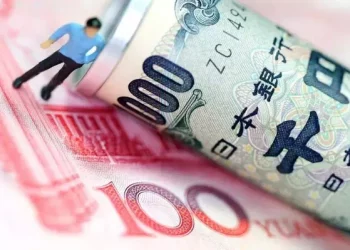Switzerland, renowned for its breathtaking landscapes, precision watches, and delectable chocolates, is a sought-after destination for travelers from around the world. However, if you’re planning a trip to this Alpine wonderland, one question that might cross your mind is, “Can I use Euro in Switzerland?” This comprehensive guide aims to address that query and provide you with insights into how to navigate currency exchange, payments, and money matters during your Swiss adventure.
Understanding Switzerland’s Currency
Switzerland, though located in the heart of Europe, has chosen to remain outside the Eurozone. As a result, the official currency of Switzerland is the Swiss Franc (CHF). This decision was made after a national referendum in 1992, where the Swiss electorate voted against adopting the Euro. Consequently, the Swiss Franc remains the sole legal tender within the country.
Can I Use Euro in Switzerland?
While the Swiss Franc is the official currency, it’s not uncommon for travelers to wonder if they can use the Euro for transactions within Switzerland. The answer is both yes and no. Switzerland is highly welcoming of tourists and does accept the Euro in certain situations, but there are important nuances to consider.
Currency Exchange: Your Best Bet
The most practical way to manage your finances in Switzerland is by exchanging your Euros for Swiss Francs. Currency exchange is easily accessible, with numerous banks, currency exchange offices, and ATMs across the country. You can exchange your Euros at the airport, banks, or currency exchange kiosks. ATMs are particularly convenient as they offer competitive exchange rates and are available in most Swiss towns and cities.
Shops and Restaurants
When shopping or dining at major tourist destinations, some shops and restaurants may accept Euros, but this is not a widespread practice. Even in such establishments, it is advisable to pay in Swiss Francs to avoid unfavorable exchange rates. Credit and debit cards are widely accepted in Switzerland, and using them for payments is often more convenient than using cash.
Public Transportation
If you’re wondering, “Can I use Euro in Switzerland for public transportation?” the answer is a bit more complicated. In some cases, you may be able to use Euros for train tickets, but it’s not guaranteed, and you may receive change in Swiss Francs. To avoid any confusion or inconvenience, it’s recommended to purchase tickets using Swiss Francs or use a credit/debit card.
Currency Exchange Tips
When exchanging your Euros for Swiss Francs, keep the following tips in mind:
Compare Exchange Rates: Exchange rates can vary between providers, so it’s a good idea to compare rates before making a transaction. Look for exchange offices that offer competitive rates and low fees.
Notify Your Bank: If you plan to use your credit or debit card in Switzerland, inform your bank beforehand to avoid any potential issues with international transactions.
Currency Conversion Fees: Be aware of any currency conversion fees that your bank may charge when using your card abroad. Some banks offer cards with reduced or waived fees for international transactions.
Emergency Euros: It’s wise to keep a small amount of Euros on hand for emergencies. While you should primarily use Swiss Francs, having a backup can be helpful.
Tourist-Friendly Areas
Switzerland’s major tourist destinations, such as Zurich, Geneva, Lucerne, and Interlaken, are more likely to accept Euros due to their higher volume of international visitors. However, it’s still advisable to use Swiss Francs to avoid unfavorable exchange rates.
Swiss Franc Coins and Notes
Swiss Francs are available in both coin and note form. The coins are denominated in 5, 10, and 20 Swiss Francs, while notes come in denominations of 10, 20, 50, 100, 200, and 1,000 Swiss Francs. It’s a good idea to have a mix of coins and notes, as some smaller businesses may prefer cash payments, especially in rural areas.
Final Thoughts
In conclusion, while you may find some businesses in Switzerland that accept Euros, it is not the norm, and it’s advisable to use Swiss Francs for all your transactions. Currency exchange is readily available, and using Swiss Francs will ensure that you get the best value for your money. Additionally, credit and debit cards are widely accepted, making electronic payments a convenient option throughout your Swiss adventure.
So, to answer the question, “Can I use Euro in Switzerland?”—yes, you can in certain situations, but it’s always best to rely on Swiss Francs to make the most of your trip. Switzerland’s stunning landscapes, rich culture, and impeccable hospitality await you, and with a solid understanding of its currency system, you can make the most of your visit to this picturesque nation.
Related Topics:
What is Euro FX: How They Work in Trade
What Is the Euro Prediction: A Full Guide
Is Euro Losing Value: Exploring the Factors
























